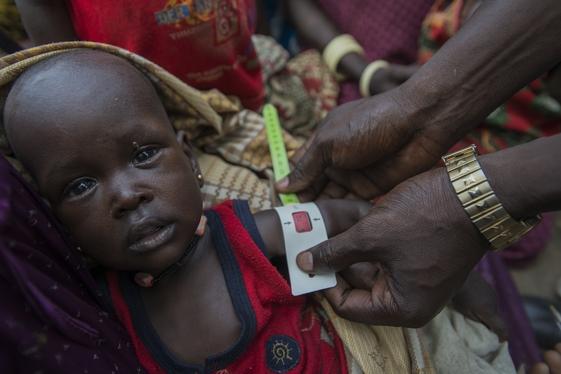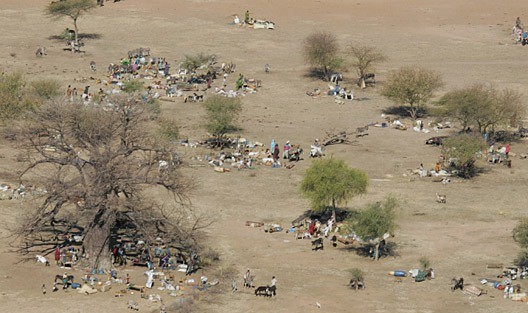Sudan and the U.S. Department of Justice: Where has all the restitution money gone?
Eric Reeves | August 7, 2015 .
The Khartoum regime’s war on its own people—in Darfur, in Blue Nile, in South Kordofan—was facilitated by criminal money laundering on the part of BNP Paribas; much of the $9 billion BNPP is obliged to pay the Department of Justice should go to provide relief to the the Sudanese victims of BNPP’s criminal actions
To date, the U.S. Department of Justice has refused to make public its plans for the $3.84 billion that was set aside for restitution more than a year ago, following a guilty plea by French banking giant BNP Paribas on June 30, 2015. As a penalty for its criminal actions using the U.S. financial system, BNP Paribas (BNPP) was required to pay approximately $9 billion in forfeitures and fines. Although official sentencing by the U.S. District Court for Southern New York occurred only in May 2015, the outlines of the settlement distributions were made clear within days of the June 2014 conviction.
The Facts
$6.4 billion (roughly 72 percent) of the $9 billion that BNPP was required to forfeit grew out of criminal transactions on behalf of the regime in Khartoum, Sudan (the rest was on behalf of the governments of Cuba and Iran). Moreover, it is indisputable that the people of Sudan—in Darfur, Blue Nile, South Kordofan and elsewhere (as well as more than half a million Sudanese refugees in eastern Chad, South Sudan and other countries)—have suffered greatly because of BNPP’s actions and clearly deserve restitution. The presiding District Court judge, Lorna Schofield, specified those who should receive such restitution: those “directly and proximately harmed” by the criminal actions of BNPP. Sudanese communities—throughout Sudan and in refugee camps—comprise those who most clearly meet Judge Schofield’s criterion.
The needs of these communities are overwhelming. Figures from the UN’s Office for the Coordination of Humanitarian Affairs (OCHA) paint a devastating picture of desperate need. Aggregated, the needs of Sudanese communities should be understood on the basis of the following table:
- Amount needed to meet the humanitarian needs of Sudanese in areas where the UN and International Humanitarian Nongovernmental Organizations (INGOs) are working: $1,382,782,861
- Money available: $498,445,975
- Money still required to meet humanitarian needs: $884,336,886
These figures include the needs of more than 370,000 Sudanese refugees in eastern Chad and the approximately 250,000 Sudanese refugees in South Sudan. They also reflect the needs of more than 3 million people internally displaced within Sudan.
Newly displaced persons in Darfur, the western region of Sudan—displaced by Khartoum’s regular and militia forces as part of an ongoing genocidal counter-insurgency. Financial assistance by virtue of BNP Paribas’ criminal money laundering on behalf the regime helped make this possible
The Questions:
Despite the overwhelming needs of Sudanese communities on the ground in the region, and the immense funding shortfalls that are reflected in OCHA’s figures, the Department of Justice refuses to answer publicly all questions about restitution monies. Indeed, DOJ refuses to answer a raft of questions essential in bringing moral clarity to a fundamental fact: not one dime of the $3.84 billion in restitution has been devoted to providing assistance to Sudanese communities in the region. And this fact inevitably leads to others, which DOJ also refuses to answer:
- Are there “other stakeholders” in the BNPP settlement not yet identified” if so, who are they? (The window is for DOJ’s prosecution of criminal financial activity was 2002 – 2012; for Sudan specifically, the window of time was 2002 – 2008)
- Has DOJ received the full amount of the forfeiture due (again, almost $9 billion)—and if not why not? The Economist made clear a year ago that BNPP could easily pay the fine, even if painful.
- Do we know whether other identified stakeholders—the State of New York, the City of New York, the Federal Reserve—have received their part of the BNPP settlement?
- If they have, why were they put ahead of desperately needy Sudanese communities, which have a claim on at least 72 percent of the restitution monies DOJ spoke of this past May—three months ago?
- Are any other supposed “stakeholders” holding out for more of the settlement monies?
- What was the justification for giving New York State $3.3 billion of the forfeitures?
- Why won’t DOJ provide a full and transparent account of the $9 billion?
- Why in May 2015—almost a year after BNPP’s guilty plea to criminal charges and a forfeiture demand of $9 billion—was DOJ only beginning to “explor[e] ways to use these [$3.84 billion] in forfeited funds”? (see below)
- How can restitution monies be allowed to sit idly when the communities of Sudanese and Sudan refugees are in such desperate need?
Below is DOJ’s rehearsal of sentencing remarks by Judge Schofield on May 1, 2015 concerning restitution in the BNPP case:
The Honorable Lorna B. Schofield also entered a forfeiture money judgment in the amount of $8,833,600,000. The Government, pursuant to the plea agreement, agreed to give BNPP credit for payments made to other entities in connection with its resolutions relating to this conduct. For that reason, the amount transferred to the Government was approximately $3,838,800,000.
DOJ’s remission and restitution processes do not provide for victim compensation for persons who were not directly and proximately harmed by BNPP’s sanctions violations. However, DOJ is exploring ways use these forfeited funds to compensate individuals harmed by the sanctioned regimes of Sudan, Cuba, and Iran.
CONTACT INFORMATION FOR THE DEPARTMENT OF JUSTICE
• Loretta E. Lynch, Attorney General of the United States
Email: webmaster@usdoj.gov
Telephone: Department of Justice Main Switchboard | 202-514-2000
• Assistant Attorney General of the United States, Criminal Division, Leslie R. Caldwell (the Criminal Division oversaw the BNP Paribas case)
U.S. Department of Justice/Criminal Division
950 Pennsylvania Avenue, NW
Washington, DC 20530-0001
Email: Criminal.Division@usdoj.gov
Website: http://www.justice.gov/criminal/contact-criminal-division
Telephone: Criminal Division Citizen Phone Line | 202-353-4641


